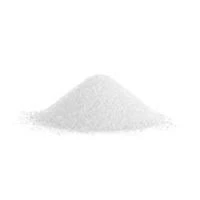
anticaking agent e551
Understanding E551 The Role of Anticaking Agent in Food Products
E551, commonly known as silicon dioxide or silica, is an anticaking agent used extensively in the food industry. As a widely recognized food additive, it plays a crucial role in ensuring the quality and longevity of various products. In this article, we will delve into the functions, benefits, regulatory status, and health implications of E551.
What is E551?
E551 is a natural compound that occurs in various forms in nature. It is primarily derived from silica, which is a fundamental component of sand. In the food industry, silicon dioxide is processed to a fine powder, making it suitable for use in food products. Its primary function is to absorb moisture and prevent clumping, thus maintaining the free-flowing characteristics of powdered foods.
Functions of E551
The primary purpose of adding anticaking agents like E551 is to prevent the formation of lumps in powdered substances. Many food products, including powdered milk, salt, spices, and baking powders, are prone to caking due to moisture absorption. E551 works by creating a barrier around individual particles in these products, allowing them to flow freely and remain easily pourable. This is incredibly important not only for consumer-friendly packaging but also for the efficiency of food processing.
Besides its anti-caking properties, silicon dioxide is also used as a stabilizer in various recipes, especially in products that require consistent texture and quality, such as shelf-stable sauces and salad dressings. Its ability to enhance texture and prolong shelf life makes it a favorite among food manufacturers.
Benefits of Using E551
E551 offers several advantages to both producers and consumers. From a manufacturing standpoint, it helps minimize waste during production and packaging, leading to higher yields and cost savings. For consumers, the presence of E551 ensures a uniform experience when using powdered products—no more clumping or difficulties in dispensing the ingredients.
anticaking agent e551

Additionally, E551 is typically recognized as safe by various health authorities, including the U.S. Food and Drug Administration (FDA) and the European Food Safety Authority (EFSA). This widespread acknowledgment provides reassurance to consumers regarding the safety of products containing this agent.
Regulatory Status
Regulatory frameworks around E551 differ globally. In the European Union, it is classified under the additive code E551, and its usage is strictly regulated. The EFSA evaluates its safety and sets acceptable daily intake levels based on extensive scientific research. Similarly, the FDA allows silicon dioxide as a food additive and considers it safe for consumption as per the specified use limits.
However, it is important to note that due to the potential for inhalation risks in powdered form, the use of E551 must comply with specific guidelines in food manufacturing to prevent any health hazards.
Health Implications
When consumed in regulated amounts, E551 is deemed safe. Nevertheless, concerns have been raised regarding excessive intake. Some studies suggest that large quantities of silica may lead to respiratory issues if inhaled in its powder form, though such situations typically arise in industrial settings rather than through diet.
Consumers should also be aware of the potential for allergic reactions or sensitivities, although such cases are extremely rare. As with any food additive, moderation is key. For those preferring a more natural diet, there are alternatives to E551 available, such as cornstarch or rice flour, which can also prevent caking.
Conclusion
E551, or silicon dioxide, serves as an essential anticaking agent in the food industry, contributing to the quality and usability of many food products. While regulatory bodies recognize its safety, it's always prudent for consumers to remain informed about the additives in their food. The role of E551 cannot be overstated; it not only enhances the product experience but also supports the efficiency of food manufacturing processes. Whether you’re a consumer or a food enthusiast, understanding this additive enriches your knowledge about the food products you enjoy.
-
Pure Sodium Dichloroisocyanurate Dihydrate | Powerful DisinfectantNewsAug.29,2025
-
Industrial Chemicals: Quality & Purity for Every IndustryNewsAug.28,2025
-
Nitrile Rubber Honoring Strict Production StandardsNewsAug.22,2025
-
Aspartame Ingredients Honoring Food Safety ValuesNewsAug.22,2025
-
Fertilizer for Balanced Plant NutritionNewsAug.22,2025
-
Cyanide Gold Processing with High Purity AdditivesNewsAug.22,2025
-
Formic Acid in Textile Dyeing ApplicationsNewsAug.22,2025
Hebei Tenger Chemical Technology Co., Ltd. focuses on the chemical industry and is committed to the export service of chemical raw materials.
-

view more DiethanolisopropanolamineIn the ever-growing field of chemical solutions, diethanolisopropanolamine (DEIPA) stands out as a versatile and important compound. Due to its unique chemical structure and properties, DEIPA is of interest to various industries including construction, personal care, and agriculture. -

view more TriisopropanolamineTriisopropanolamine (TIPA) alkanol amine substance, is a kind of alcohol amine compound with amino and alcohol hydroxyl, and because of its molecules contains both amino and hydroxyl. -

view more Tetramethyl Thiuram DisulfideTetramethyl thiuram disulfide, also known as TMTD, is a white to light-yellow powder with a distinct sulfur-like odor. It is soluble in organic solvents such as benzene, acetone, and ethyl acetate, making it highly versatile for use in different formulations. TMTD is known for its excellent vulcanization acceleration properties, which makes it a key ingredient in the production of rubber products. Additionally, it acts as an effective fungicide and bactericide, making it valuable in agricultural applications. Its high purity and stability ensure consistent performance, making it a preferred choice for manufacturers across various industries.





